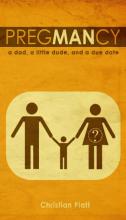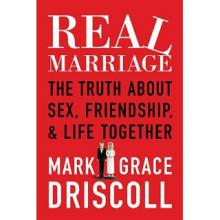sex

It’s been a mind-boggling fortnight at the Internet water cooler. Kony 2012. Mike Daisey’s dubious portrayal of Apple’s manufacturing practices abroad. Questions of whether the “Christian Movie Establishment” is “out to get” Blue Like Jazz … and an Amazon petition to let Rachel Held Evans use the word “vagina” in her forthcoming book, The Year of Biblical Womanhood.
Running through each of these stories and the surrounding debate are similar themes: truth, storytelling, power, persuasion. The online conversation is often vicious and acrimonious, reflecting a trend that’s spurred some writers to leave reader comments unread.
Adding to the intensity of the discussions is that almost each of these controversies involves an effort to change something: the Ugandan geo-political scene; unethical manufacturing practices; ways of talking about religious experience; “Christian” expectations for women. That’s not to say these creators set out with those ends as their foremost goal, but their projects were certainly meant to be more than beautiful or useful.

We're delighted to share with you an excerpt from Christian Piatt's forthcoming (April 1) memoir, PregMANcy: A Dad, a Little Dude and a Due Date:
“Screw it.”
These two words are what started the baby ball rolling in the Piatt household, back in January. After months of counseling, discernment, weepy nights and sleepless mornings, I submitted, succumbed, caved in like the roof of a Geo convertible.
I know “screw it” is an ironic choice of words, considering the circumstances. I also think it’s sadistically ironic that we men are biologically tuned to love sex so much, yet we’re usually the ones who freak out the most about the byproduct. I’m a typical male, visually aroused by anything vaguely resembling a boob or a booty. Also, working from home and sharing responsibility with my wife for the daily development of our four-year-old son, Mattias, makes me somewhat abnormal. And it’s this shared responsibility, I think, that makes having another kid such a big deal for me.

HE SAID: David Vanderveen
Real marriages develop from two people who are committed to making them work. The specifics of how two real people make one real marriage work is largely irrelevant given the freedom we have in Christ. Marriage is supposed to be a symbol of our relationship with God on earth.
We don’t need more multiple choice tests and true-and-false quizzes with black-and-white answers to bring heaven to earth; we need to put the love of the other first — with God at the core — to make our marriages work.
SHE SAID: Sarah Vanderveen
Real Marriage is a poorly written, poorly researched book by a well-meaning pastor who I believe is struggling with his own sexuality and sense of self-worth. I don’t know how else to explain his weirdly inappropriate fixation on masculinity and specific sexual practices, and his failure to address the complexity of human sexuality and relationships.
It feels to me like he doesn’t really want to understand the whole person, rather he just wants to cut straight to the salacious tidbits. I realize that’s how you sell a lot of books, but still. I get the distinct impression that Driscoll is not a man at peace.

This is a touchy subject for me, as I am a strong advocate of bringing cultural criticism and dialogue into the church, and I’m equally supportive of churches having frank forums where they deal with issues of sex and sexuality. But there is a distinct, if not fine, line between stretching a church to be relevant and jumping on the latest trend simply to draw attention to yourself.
Yes, I know religious institutions are collectively flipping out about the decreasing number of attendees and increased number of church closures. The fact is that some churches will do the world more good once closed than they’re doing today. This is not to say they’re doing active harm (though I’m sure some are), but rather that the tireless, copious use of resources – both human and financial – to prop up dying institutions is to point to one’s self rather than toward God. We get hung up on the idea that the former is a necessary means to the latter end, but not necessarily. Like a fallow field, sometimes it’s best to take what is left, turn it into the ground and allow it to be reborn into something entirely new.
Ed Young and his wife, Lisa, have penned a new book called “Sexperiment: 7 Days to Lasting Intimacy with Your Spouse,” which is a sort of how-to guide for couples to rekindle intimacy in their marriage while remaining within the boundaries of biblical virtues, as interpreted by the authors.
First off, I’m glad evangelicals are joining the sexuality discussion. Having helped create a series of books whose first title was focused on faith and sex/sexuality, I believe it’s of great importance that faith leaders speak in open, healthy ways about sexuality, sexual expression, attraction, and so on.
One of the most hyped points made in the book is that it encourages married couples to engage in their own “Sexperiment,” where they commit to having sex each day for a week. The theory is that this will renew physical and emotional intimacy, and also help reduce the urge for things like pornography.
Hey, sex for Jesus sounds like a no-brainer to me. Sign me up!